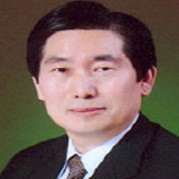약력
Dr. Changmo Sung is president of GTCK (Green Technology Center Korea), Korea’s only green technology think-tank with policy/planning capabilities and professional skills on technology transformation and diffusion for developing countries. GTCK is a government research institution to coordinate and make green growth policies of related ministries and agencies, especially Interdepartmental Green Technologies R&D (budget $3.1 billion/year) of Korea. GTCK aims to be the main Gateway of Korea for Global Green Technology Cooperation. Recently GTCK has been working with GGGI, GCF, UNESCAP, UNDP, CITYNET, and IDB for developing countries.
Dr. Sung was a president of Hyosung Corporation (Annual Revenue of USD$11 Billion) and was responsible for R&D Business Institute. He had worked as President of Inje University, Gyungnam Provinceafter 23 years residence in the United States. He was also serving as Presidential Committee on Balanced National Development, Presidential Commission on Policy Planning, and National Special Committee of Innovation Science Technology. Based on his engineering faculty experience of Academia-Industry collaborative, technology transfer, and commercialization in Boston Route 128, Dr. Sung was involved in planning and execution of Korean high technology clusters and commercialization for advanced regional economic development. He had been a tenured professor at University of Massachusetts, Lowell since 1993 and was involved in NSF Nanomanufacturing Center and Renewable Energy Research. He had published more than 100 technical papers and presentations in materials and nanoengineering fields.
Dr. Sung was a president of Hyosung Corporation (Annual Revenue of USD$11 Billion) and was responsible for R&D Business Institute. He had worked as President of Inje University, Gyungnam Provinceafter 23 years residence in the United States. He was also serving as Presidential Committee on Balanced National Development, Presidential Commission on Policy Planning, and National Special Committee of Innovation Science Technology. Based on his engineering faculty experience of Academia-Industry collaborative, technology transfer, and commercialization in Boston Route 128, Dr. Sung was involved in planning and execution of Korean high technology clusters and commercialization for advanced regional economic development. He had been a tenured professor at University of Massachusetts, Lowell since 1993 and was involved in NSF Nanomanufacturing Center and Renewable Energy Research. He had published more than 100 technical papers and presentations in materials and nanoengineering fields.

